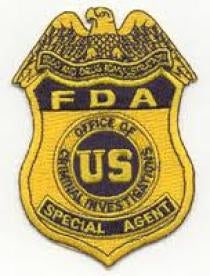This e-alert is part of a series of e-alerts summarizing publicly available FDA enforcement letters (i.e., warning letters and untitled letters) relating to the advertising and promotion of prescription drugs, medical devices, and biologics.
OPDP issued the following letter on FDA’s website in late December 2017:
- Untitled Letter to University of California Los Angeles (UCLA) re: Gallium 68 (68GaPSMA) (Dec. 28, 2017) (“68Ga-PSMA Untitled Letter”)
Although issued in December, this letter was not posted on FDA’s website until mid-January, after publication of our monthly alert for December. This was the fifth and final enforcement letter OPDP issued in 2017. Neither OPDP, nor FDA’s Center for Devices and Radiological Health (CDRH) Office of Compliance (OC) or FDA’s Advertising and Promotional Labeling Branch (APLB) in the Office of Compliance and Biologics Quality (OCBQ), posted any enforcement letters relating to advertising and promotion on FDA’s website in January.
Office of Prescription Drug Promotion (OPDP)
68Ga-PSMA Untitled Letter (December 2017)
OPDP states that UCLA’s webpage (http://urology.ucla.edu/psma-pet-imaging) and a brochure available through the webpage (titled “New imaging test accurately detects prostate-cancer cells throughout the body”) misbrand the investigational drug 68Ga-PSMA under section 502(f)(1) of the Federal Food, Drug, and Cosmetic Act (FDCA).
Misbranding of an Investigational Drug:
OPDP alleges that the webpage and online brochure misbrand 68Ga-PSMA under FDCA section 502(f)(1) by suggesting in a promotional context that the drug is safe and effective for the purpose for which it is being investigated, i.e., use in PET scans to detect prostate-cancer cells throughout the body, and by otherwise promoting the drug. Under section 502(f)(1) a drug is misbranded unless its labeling bears “adequate directions for use,” but an investigational drug is exempt from such requirement if it “complies with section 505(i) [of the FDCA] . . . and regulations thereunder.” 21 CFR 201.115(b). Among these regulations, “[a] sponsor or investigator . . . shall not represent in a promotional context that an investigational new drug is safe or effective for the purposes for which it is under investigation or otherwise promote the drug.” 21 CFR 312.7(a). OPDP alleges that the webpage and brochure fail to comply with the requirements for this exemption from FDCA section 502(f)(1) by making claims that promote 68Ga-PSMA as safe and effective for the purpose for which it is being investigated or that otherwise promote the drug when 68Ga-PSMA has not been approved by FDA for any use. These claims include the following:
- “New imaging test accurately detects prostate-cancer cells throughout the body”
- “68Ga-PSMA PET/CT imaging, or PSMA-PET imaging for short, represents a major advance in detecting prostate cancer. At UCLA, with the availability of PSMA-PET imaging patients now have a new option of detecting prostate cancer cells anywhere in the body more accurately than traditional methods.”
- “Since PSMA-PET imaging became available at UCLA in September, patients now have a new option that’s better at detecting the location of prostate-cancer recurrences.”
- “This test has had a tremendous and immediate impact on prostate-cancer patients . . .. They can really benefit from this.”
- “There are no common side effects or significant risks . . .”“In contrast to the traditional studies, PSMA-PET imaging offers high sensitivity and specificity.”
- “Whereas the unreliable results of traditional tests can lead to unnecessary or insufficient disease treatment and management decisions, PSMA-PET allows doctors to make more informed treatment decisions. While radiation and surgery are typical in localized cases, chemotherapy or hormone therapy might be appropriate in cases where PSMA-PET imaging detects prostate-cancer cells in the bone or lymph nodes. PSMA-PET imaging allows for more informed care, with likely better outcomes as a result.”
- “Ga-PSMA PET CT is now offered at UCLA and aims to improve management of recurrent and high-risk cancers.”
This alert merely summarizes the allegations contained in FDA’s letters. It does not contain any analyses, opinions, characterizations, or conclusions by or of Covington & Burling LLP. As a result, the information presented herein does not necessarily reflect the views of Covington & Burling LLP or any of its clients.







 i
i


